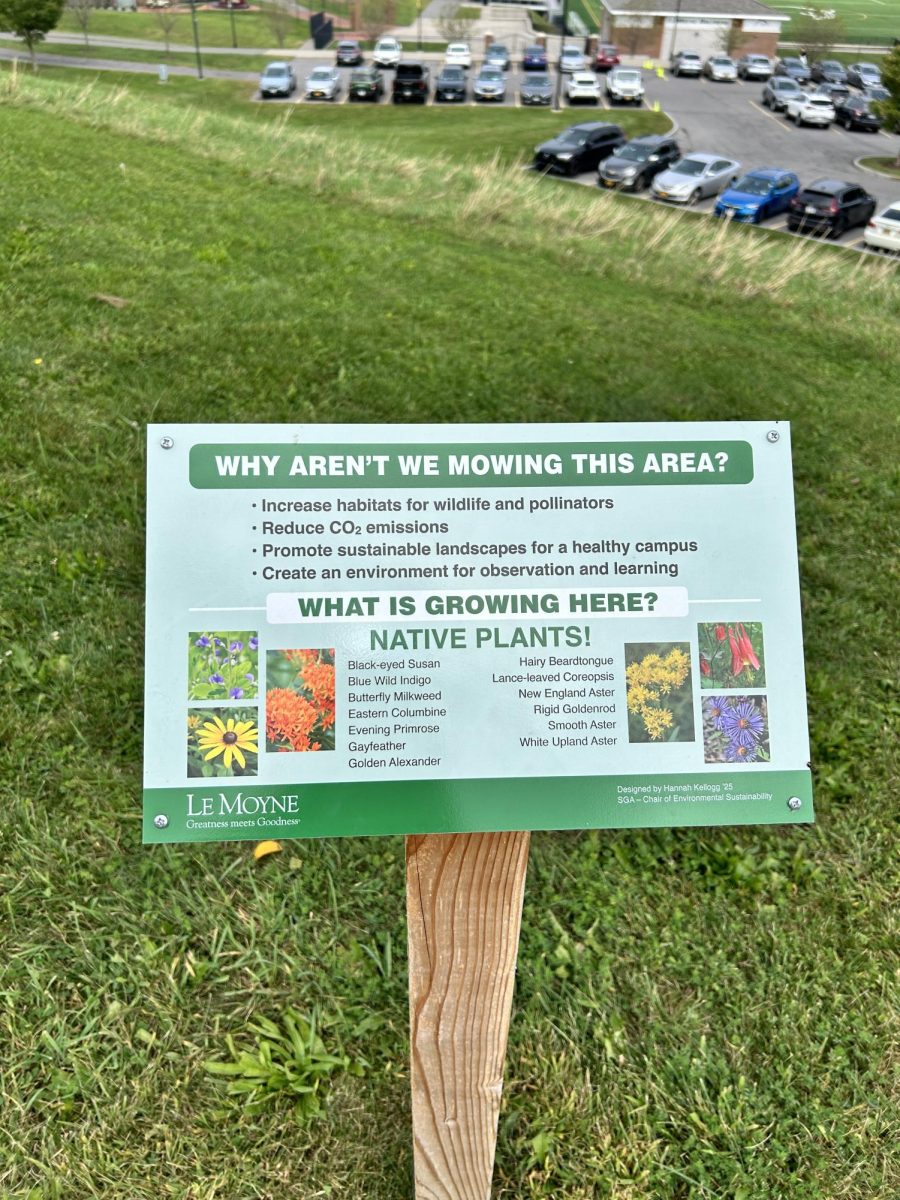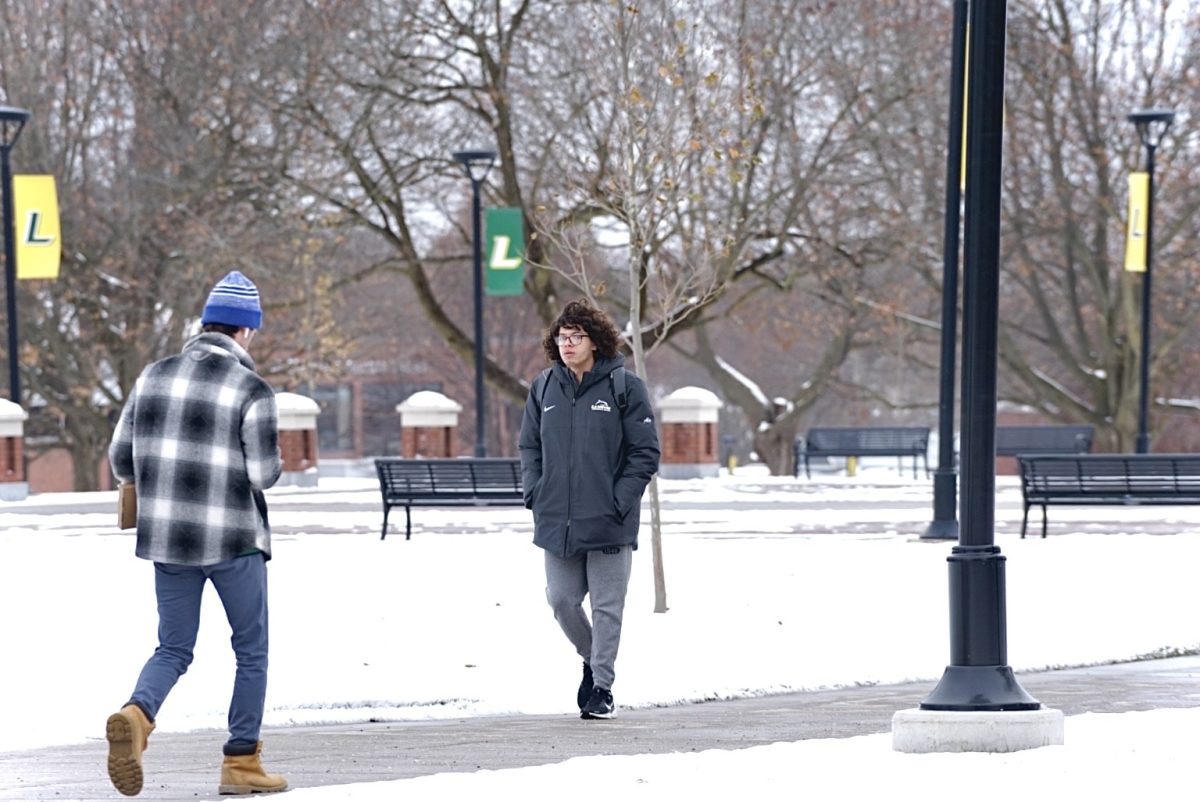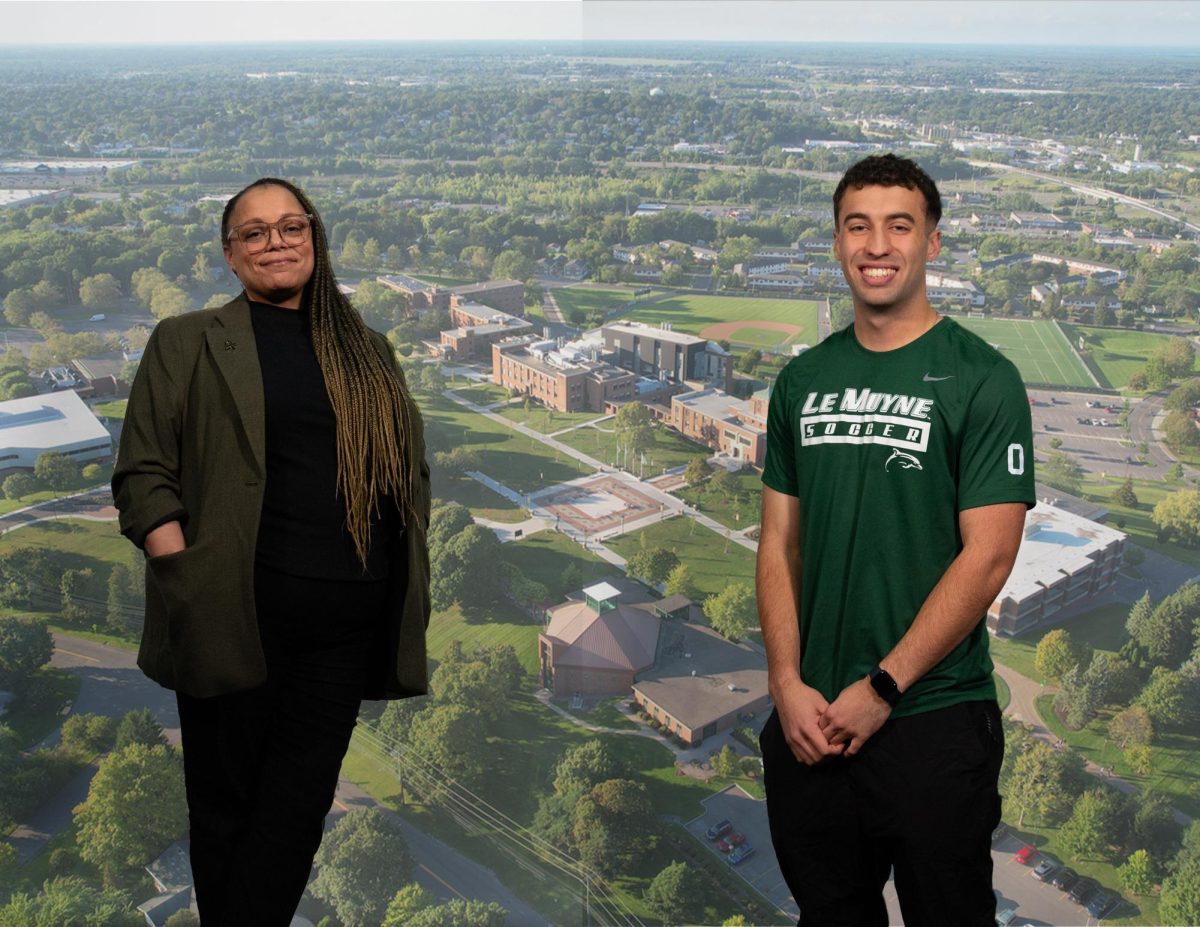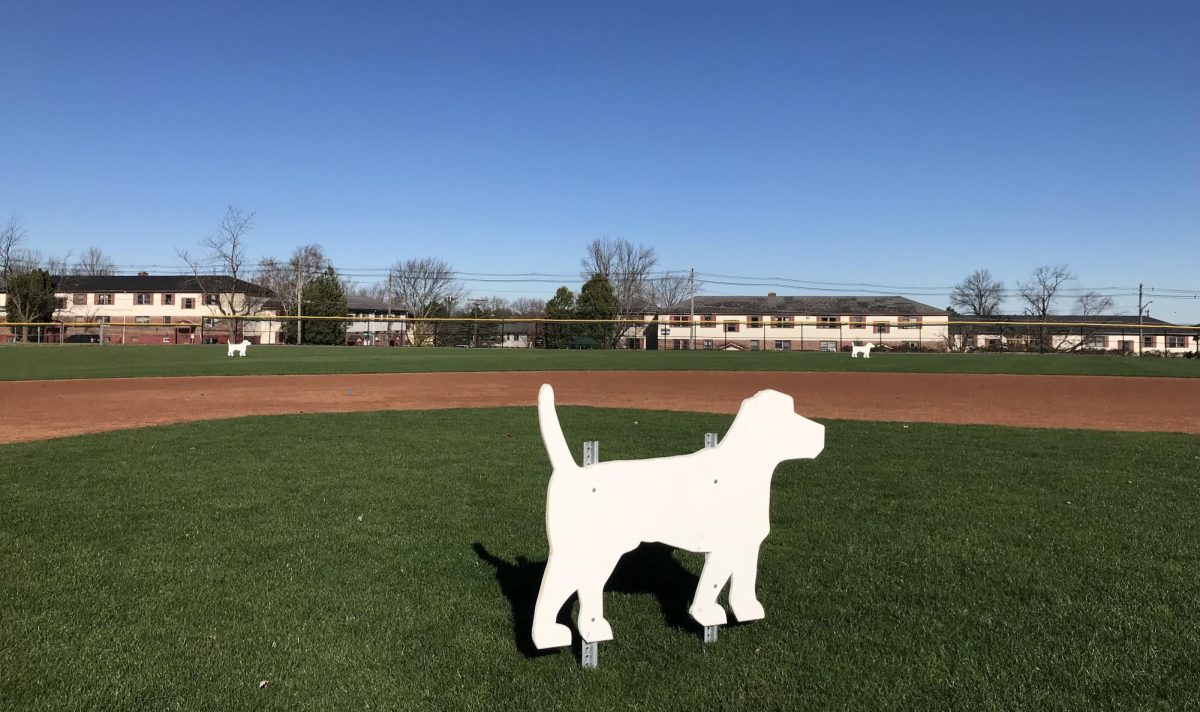Since last semester, Le Moyne College students have hiked up the hill to Grewen Hall flanked by a field of weeds said to be a sustainable area for native wildflowers, but there were far more straw-like grasses than colorful blooms.
Recently—and contrary to the signs along the hill’s walkway—the field was mowed, taking with it the proposed “habitats for wildlife and pollinators” and what was said to be “an environment for observation and learning.”
But, this was all part of the plan.
Originally a project in Dr. McManus’ biology class, called Poisoning of a Planet, the preservation of the field and other areas of campus are now a collaboration between the Sustainability Steering Committee, Facilities, and the Le Moyne College Gardening Club, the first two of which made the decision to mow the Grewen hill.
Though they are considered No-Mow Zones, these areas actually need to be mowed one to two times a year to prevent invasive species from overtaking the native plants.
In addition to the hill, No-Mow Zones have also “expanded to the meadow behind St. Mary’s and a field near the Le Moyne woods,” according to director of communications Joseph Della Posta.
While instituting the zones takes time, a mix of native wildflower seeds has already been planted on the Grewen hillside. Among the flowers expected to blossom are the Partridge Pea, Wild Bergamot, Gray Goldenrod, and Wild Blue Indigo.
“The college will continue to add these seeds as well as established plants in these areas until they are able to spread on their own, becoming more biodiverse and colorful,” Della Posta says.
Hannah Kellogg, a senior biology major, has played a big role in spearheading the initiatives. On top of serving on the Sustainability Steering Committee, she is also the Chair of Environmental Sustainability on SGA and President of Gardening Club.
“It’s important to me that we build a more sustainable campus, but beyond that, [teach] future generations how to take care of the planet,” Kellogg says. “The biodiversity loss due to the current climate crisis is affecting everyone, and I feel that teaching and promoting these small changes is one step in the right direction.”
Kellogg has also been involved in another project—the addition of a Native Butterfly Garden behind the PAC to “encourage pollinators and native gardening.” While the garden is a work in progress, Kellogg says the finishing touches will be added in the coming weeks.
Though at first glance students may not see a difference in the No-Mow Zones, they can rest assured that community members like Hannah Kellogg are working diligently behind the scenes to do their part in making the college more sustainable.
Those attending Le Moyne for the next few years will have the pleasure of seeing the hill and other spaces transform from overgrown fields to flurries of flowers, welcoming current and future students to a brighter, more earth-friendly campus.






